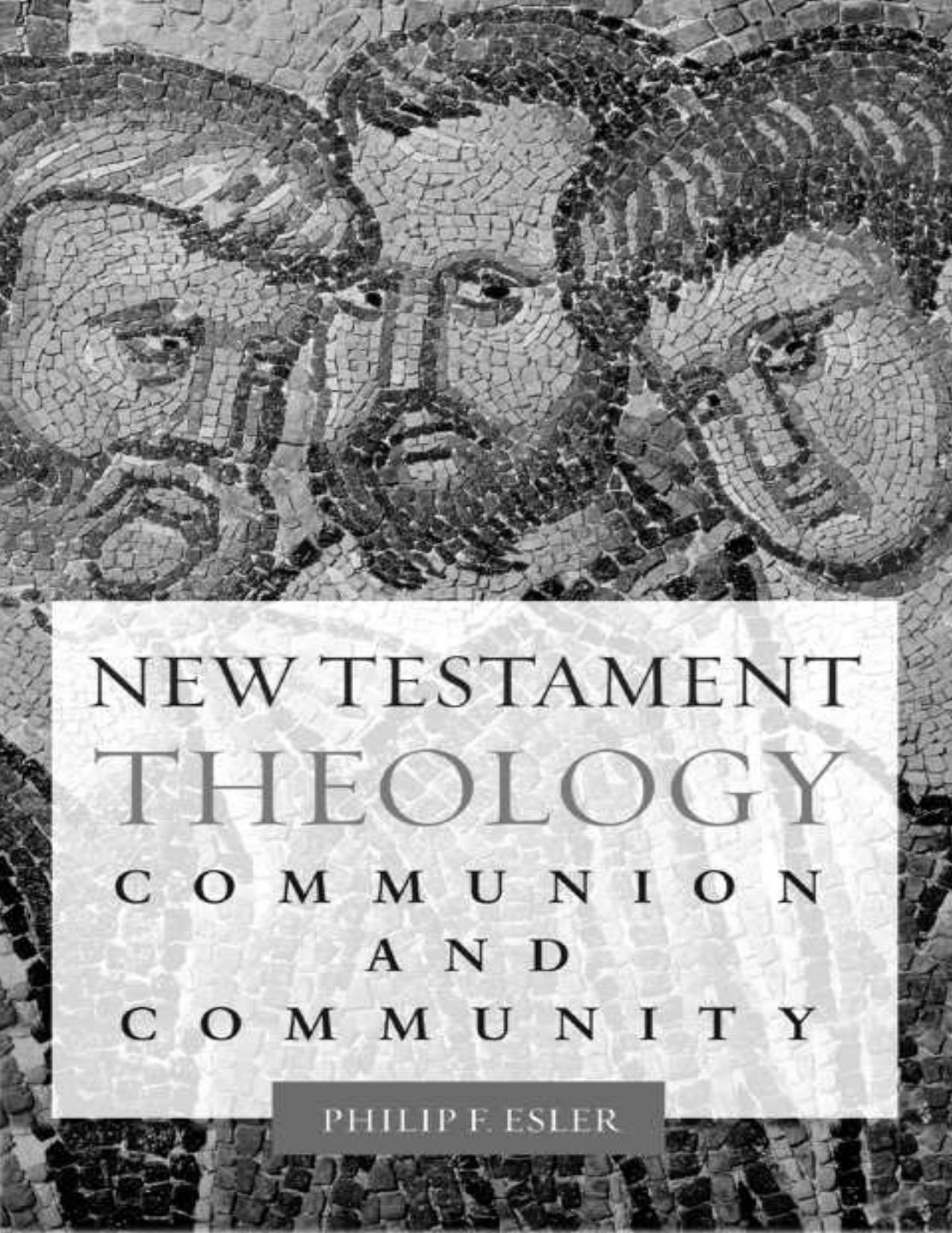New Testament Theology: Communion and Community by Philip Francis Esler

Author:Philip Francis Esler
Language: eng
Format: epub, pdf
Published: 2007-05-10T17:05:00+00:00
The Superiority of Intelligible Discourse: 1 Corinthians 14
The first verse of 1 Corinthians 14 marks a transition from the treatment of agape, in the preceding chapter. Having established in 1 Corinthians 13 that love takes precedence over the pneumatika, Paul now repeats the importance of agape but then returns to the pneumatika, especially emphasizing prophecy: "Pursue love, and zealously seek the spiritual gifts, especially that you might prophesy." Although the spiritual gifts are not as fundamental as love in community maintenance, they are still important and Paul considers them at some length.
The dominant theme of chapter 14 is that intelligible utterance, especially prophecy, is more useful for building up the community than the nonintelligible utterance that is glossolalia. The person who speaks in tongues speaks not to human beings but to God; no one understands him, since he is speaking mysteries in the Spirit; he builds up (oikodomei) only himself. On the other hand, the one who prophesies speaks to other persons, "building [them] up" (oikodome), produces encouragement and consolation, and builds up the community (ekklesian oikodomei; vv. 2-4). Glossolalia can only build up the community if it is interpreted (v. 5).
Paul is adamant that intelligibility is essential if language is to serve a positive role within the community. Even his glossolalia could not help them unless he provides revelation, knowledge, prophecy, or teaching, all of which imply comprehensible discourse (vv. 6-8). So also with them; their discourse (logos) has to be intelligible or they will not be understood (v. 9). They will be as unintelligible to one another as two people speaking two different human languages (vv. 10-11). Granted they desire the spiritual gifts, their goal should be to abound in those that cause a building up (oikodome) of the community (ekklesia; v. 12), those gifts in which they use their mind (nous), and not the gifts in which their minds are "fruitless" (v. 14). Five words of this type are preferable to tens of thousands in tongues (v. 19). They must be mature in their rational intelligence (v. 20). By recourse to a non-Septuagintal version of Isa 28:11-12 ("By foreign tongues and by the lips of others I will speak to this people, yet even so they will not listen to me,' says the Lord"), Paul argues that tongues are a sign for those who do not believe, not for those who do. By this he means that nonbelievers will not be won over by glossolalia; they will think that the congregation's members that practice it are mad (v. 23). Prophecy, on the other hand, is a sign for believers and not nonbelievers. This means that if nonbelievers enter a congregation where prophecy is being practiced, they will be persuaded of the truth of the message and will worship God for the reason that God is truly among them (vv. 24-25).
In the next section (vv. 26-33), Paul drives home this message. His concern is that spiritual gifts ensure that every gathering ("Whenever you come together"), when each of
Download
New Testament Theology: Communion and Community by Philip Francis Esler.pdf
This site does not store any files on its server. We only index and link to content provided by other sites. Please contact the content providers to delete copyright contents if any and email us, we'll remove relevant links or contents immediately.
Fearfully and Wonderfully Made by Philip Yancey & Paul Brand(589)
Christian Ethics by Wilkens Steve;(577)
Numbers by Ronald B. Allen(507)
The World from 1450 To 1700 by Wills John E.;(503)
Christian Ethics: An Introduction to Biblical Moral Reasoning by Wayne Grudem(484)
How to Read Slowly by James W. Sire(470)
God and the Multiverse by Victor J. Stenger(451)
Morality by Jonathan Sacks(437)
Monastic Archaeology by Unknown(409)
The Disabled Church by Rebecca F. Spurrier;(400)
Jesus: A New Vision by Whitley Strieber(378)
Critical Writings by Joyce James;(372)
Death of the Doctor by Unknown(371)
Redeeming Sociology by Vern S. Poythress(368)
Amish Grace by Donald B. Kraybill & Nolt Steven M. & Weaver-Zercher David L(367)
The Technological System by Jacques Ellul(358)
Children of Lucifer; The Origins of Modern Religious Satanism by Ruben van Luijk(356)
The Catholic Case for Trump by Austin Ruse(337)
The Church in the Early Middle Ages by G.R. Evans(337)
